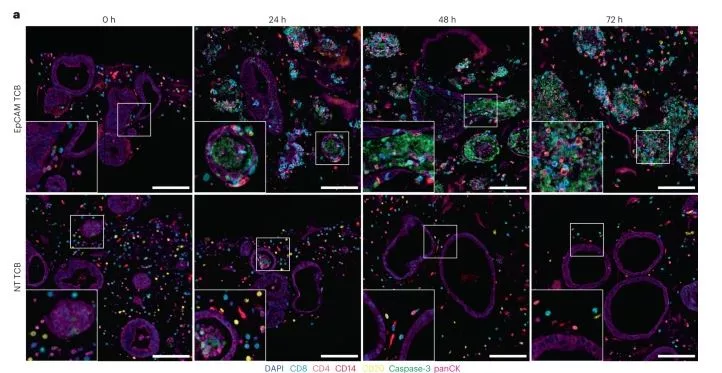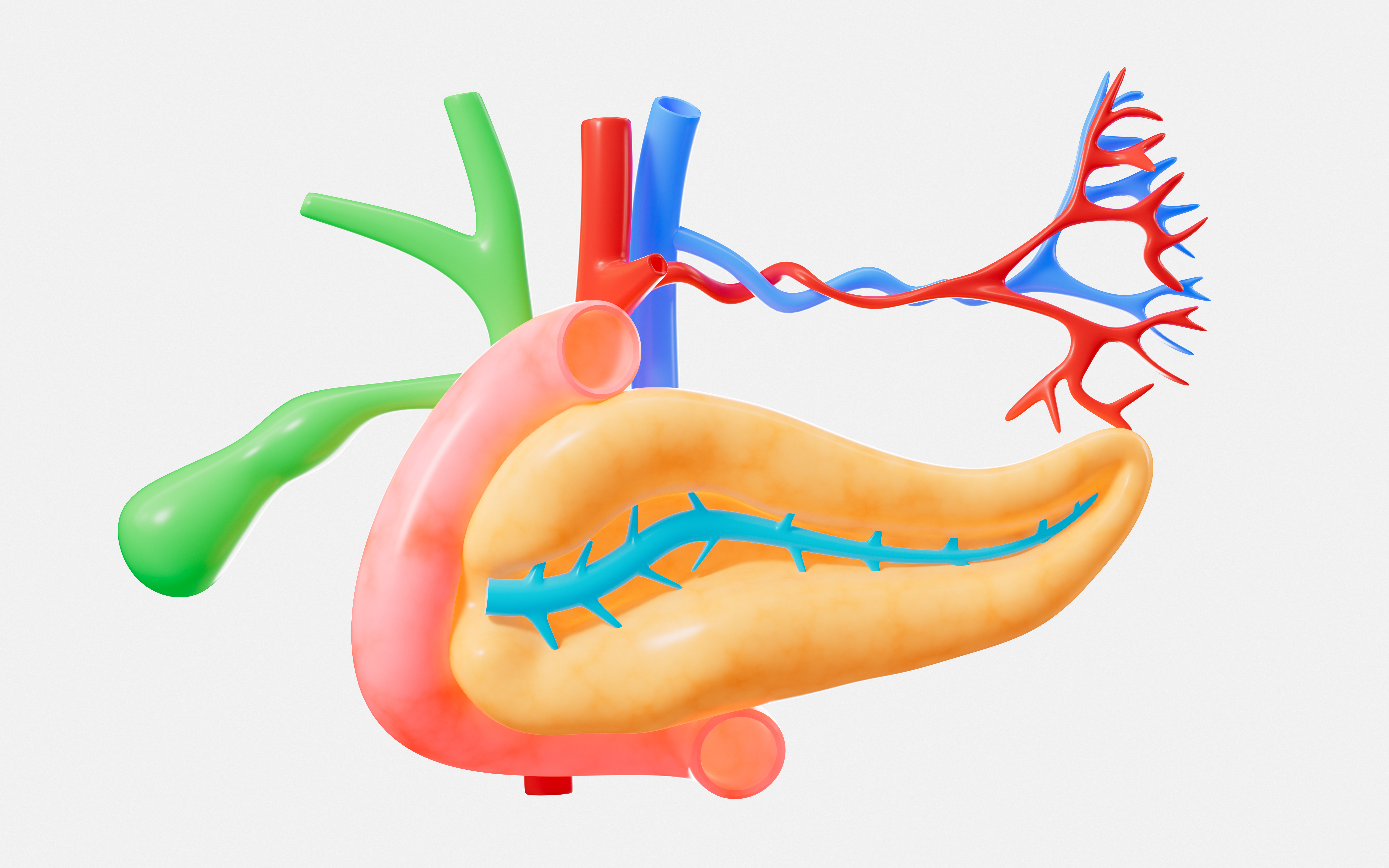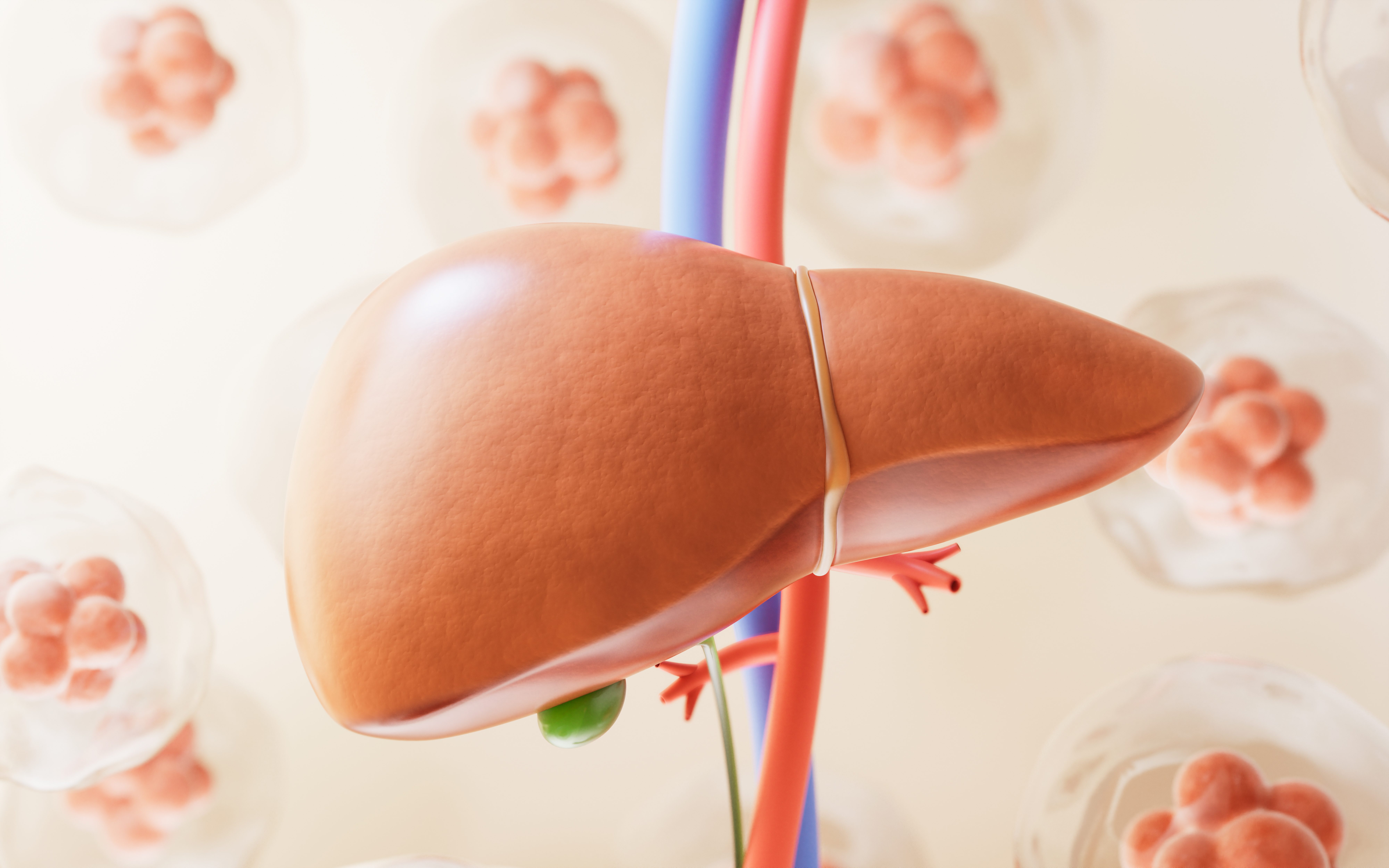Predicting the toxicity of cancer immunotherapies in preclinical models can be challenging because these models often do not fully replicate the expression of relevant human antigens. In this study, researchers demonstrate that patient-derived intestinal organoids and tumouroids, supplemented with immune cells, can serve as valuable tools for studying on-target off-tumour toxicities of T-cell-engaging bispecific antibodies (TCBs). These models also capture clinical toxicities that are not predicted by conventional tissue-based models and highlight inter-patient variabilities in TCB responses. The study analyzes the mechanisms of T-cell-mediated damage to neoplastic and donor-matched healthy epithelia at a single-cell resolution using multiplexed immunofluorescence. It is found that TCBs targeting the epithelial cell-adhesion molecule induce apoptosis in healthy organoids, consistent with clinical observations. This apoptosis is associated with T-cell activation, cytokine release, and intra-epithelial T-cell infiltration. Conversely, tumour organoids are more resistant to damage, potentially due to reduced T-cell infiltration efficiency within the epithelium. Patient-derived intestinal organoids prove valuable for studying immune-epithelial interactions and aiding in the preclinical and clinical development of cancer immunotherapies.
Keywords: Organoids, oncology





